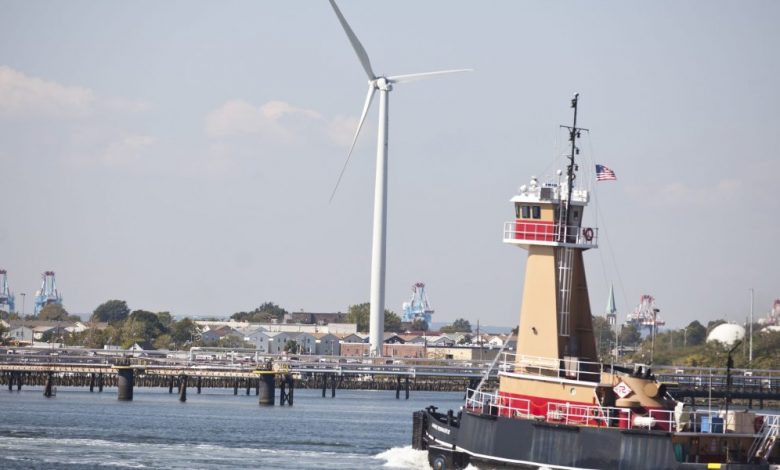New Jersey wants more offshore wind farms as critics point to 25 dead whales as casualties

New Jersey regulators are seeking additional offshore wind farm projects to generate electricity, even as opponents of wind power want to pause or halt the projects.
The New Jersey Board of Public Utilities on Monday approved a third tender for offshore wind projects; Three wind farms have already been approved for the waters off southern New Jersey.
“Today is a critical next step in achieving our offshore wind development goals,” said Gov. Phil Murphy. “Offshore wind power is a critical component on our journey to 100% clean energy by 2035, a benchmark that cements our position at the national forefront of climate action. This burgeoning industry will not only protect our communities from the worsening effects of climate change, but also create thousands of high-paying jobs and economic opportunities across the state.”
The Democratic governor has set a goal of having 11 gigawatts of offshore wind power in New Jersey by 2040, which could power 3.2 million homes.
In 2019, the Board awarded a contract from its first offshore wind energy tender to Danish utility Orsted’s 1.1 GW Ocean Wind I project, the largest single project award in the country at the time. In 2021, the Board presented its second and third awards to Ocean Wind II for 1.1 GW and Atlantic Shores Offshore Wind for 1.5 GW.
The offshore wind power industry is under attack from opponents who say preparatory work on the seabed could harm or kill whales.
At least 25 dead whales have washed up on the US East Coast since December 1, according to the National Oceanic and Atmospheric Administration. Autopsies were performed on 13 of the 25, showing ship attack was the likely cause of at least eight of the deaths, NOAA said last week.
The recent death of a humpback whale that came ashore in Seaside Park, New Jersey last week also appears to have been caused by a ship attack, according to the Marine Mammal Stranding Center, which worked with other agencies to autopsy the animal. The center warned that further testing would be needed to determine whether contusions and propeller injuries occurred before or after the whale died.
Three federal scientific agencies — NOAA, the Bureau of Ocean Energy Management and the Marine Mammal Commission — say there’s no evidence offshore wind activity is linked to whale deaths.
The federal government has been investigating whale deaths since declaring an “unusual mortality event” involving humpback whales in 2016. Since then, 186 of the animals have died between Maine and Florida, with a peak of 34 in 2017.
US Rep. Jeff Van Drew, a Republican representing southern New Jersey, schedules a March 16 hearing on the issue.
“If the federal government and these offshore wind companies have nothing to hide, then prove it,” he said in a recent statement. “They have to prove that the development of these projects will have no impact on the environment, which is hard to believe after the deaths of over a dozen whales in the northeast region where surveys are currently taking place.”
On Monday, a coalition of environmental and political groups hailed the state’s call for additional offshore wind projects.
“The clean energy opposition is incredibly transparent and led by bad faith actors funded by the fossil fuel industry,” said New Jersey Policy Perspective’s Alex Ambrose. “It is evident that their goals are not to make New Jersey cleaner, safer, or better prepared for the climate crisis; Your goals are only to protect an obsolete and dangerous energy source.”
Applications for new projects must be submitted by June 23rd. The board expects to make a decision on the applications by the end of the year.
Learn how to navigate and build trust in your organization with The Trust Factor, a weekly newsletter exploring what leaders need to succeed. Login here.



